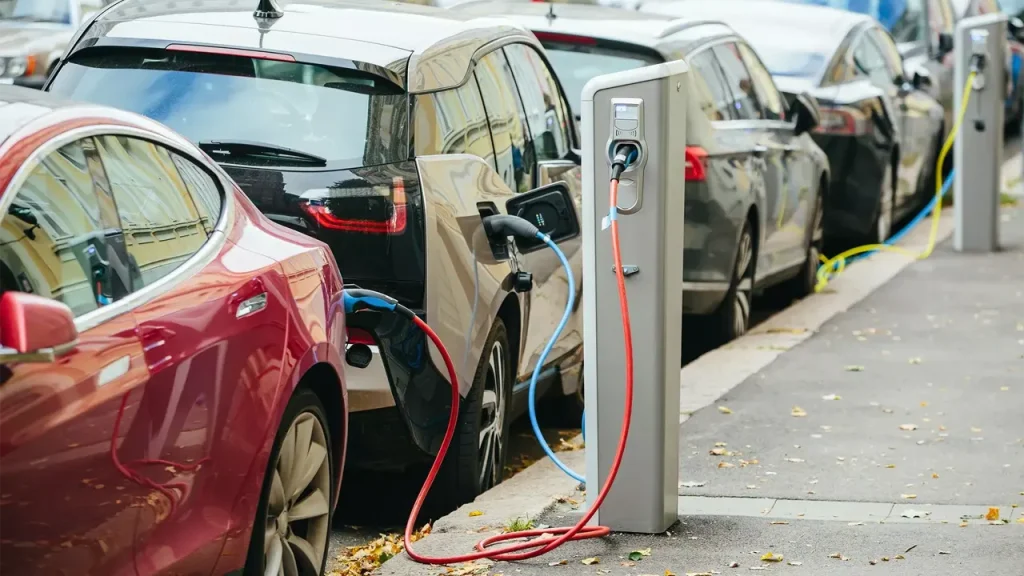We’re sure you’ve heard the phrase “___ is the future” thrown about many times in your life – sometimes it’s attributed to passing fads, but sometimes when people use it, they really mean it.
When it comes to electric cars, people are often excited about the prospect of a future where all cars are electric.

In any case, it’s hard to tell whether a new trend will stick around for the foreseeable future or if it will inevitably fizzle out in place of something better.
That way, we can curb the effects of harmful gases being released through traditional vehicles in exchange for zero-emission cars, which get the job done just as efficiently.
But are electric cars really the future? There have been some doubts about just how environmentally friendly they are, which have plenty of people questioning whether they will take over as the main vehicles of the future.
Here is a breakdown of electric cars, so you can know what to expect in the coming years for the automotive industry.
Build stunning 4D number plates
Build unique 4D number plates with our intuitive and fully interactive number plate builder.
Find Out More
Electric car statistics
In 2012, the world saw 120,000 electric cars get sold to consumers. In 2022, that amount gets sold in a week.
There’s no hiding the fact that electric cars are selling at an exponential rate each year, and this may be an indication that they are here to stay. In fact, the sales of electric vehicles in 2021 were double what they were in 2020, and that trajectory is only predicted to continue.
In 2021 almost ten per cent of all car sales were electric, so it’s safe to say that more and more consumers are opting for zero-emission solutions for their vehicles.

With a greater demand for electric vehicles, we are also seeing an improvement in the infrastructure for electric cars. For years when electric cars were first introduced, the number one complaint regarding them was charging.
With petrol and diesel stations already in full force around the world, finding a charging hub for your electric vehicle was quite difficult if you weren’t in a highly populated urban area. However, since more people are purchasing electric cars, there has been a significant increase in the amount of charging stations available.
In the UK alone, the availability of electric charging stations increased by 10% in 2021, which is in line with the number of cars sold.
This means that there should be more than enough charging stations to go around, and with ever-improving home charging stations, this has become much less of a hot-button topic for electric car owners.
So, if the statistics alone are anything to go off, then yes, electric cars really are the future! However, that doesn’t mean electric cars are fated for success just yet, as there are still some hurdles they have to overcome to fulfil their promise of being an environmentally friendly alternative to traditional gas vehicles.
Further Reading
You may also be interested in: A Brief History of Cars and Number Plates
Are they really zero emissions?
Despite zero emissions, there are plenty of factors regarding electric vehicles that may make them less adequate than widely thought in curbing the effects of climate change.
The first of these factors is how electric cars are made.
Electric cars take around 16 tonnes of CO2 emission to produce. Compared to traditional fossil fuel cars, that’s about 6 tonnes more! This is because the battery production for electric vehicles produces plenty of CO2 in the process – for every kilowatt hour of battery capacity, around 150kg of CO2 is emitted.
What about the range of your EV?
An electric car with a decent range will have at least a 60Kwh capacity. You don’t need to be crunching the numbers to recognise that there is a devastating amount of CO2 which goes into producing zero-emission vehicles.
Customise your EV number plates
Build unique ‘electric’ number plates with our intuitive and fully interactive number plate builder.
Find Out More
On top of this, electric vehicles are only as good as the power source that’s used to charge them. For example, if you charge an electric car is using electricity sourced from a coal power station, then you’re looking at around 800 grams of CO2 production per kWh of charge!
That means that “zero-emissions” is technically untrue for people charging their vehicle through a traditional electric set-up.
The push for cleaner energy
We can fix this in the long-run by using clean energy sources to power electric vehicles. For example, wind turbines and solar panels will only emit around 30-40g of CO2 kWh per hour – while that’s still some CO2, it’s a whole lot less than a traditional fossil fuel vehicle.
Another potential drawback of a future for electric cars is their price point. If you’ve ever considered buying an electric vehicle, you might have noticed that they are considerably more expensive than their fossil fuel counterparts.
However, people don’t realise with this price point just how cheap it is to recharge them. Compared to the skyrocketing fuel and diesel prices, an overnight charge with an electric car can cost you around £2 and give you 100 miles.
So, with all things considered, the price point of electric vehicles isn’t something that is going to stop consumers from purchasing since they will end up saving in the long run.
The potential drawbacks of electric cars
With the significant drawbacks in mind for electric vehicles, is it still feasible to consider them the future of the automotive industry? We would argue that it is: the downsides of electric cars, such as their costs and power sources, are issues that can easily be accounted for.
However, the more expensive electric vehicles will ultimately save consumers money in the long run, and as the process for producing electric cars is improved upon, they will begin to match regular cars in price.
In addition, renewable energy sources are becoming more and more commonplace, and the trends in home energy indicate that many houses will make the switch to renewable energy in the coming years.
This means that electric cars can uphold their zero-emission promise, and consumers will be more likely to buy them.
What’s stopping EVs from taking over?
The one thing stopping electric cars from completely taking over the automotive industry is their non-environmentally friendly production process. This is certainly not a drawback to take lightly and will be sure to turn a lot of consumers off the idea of an electric car.
Some climate scientists have attributed these CO2 emissions to the production processes in China, in which the power mix is still not as clean as its Western counterparts.
However, studies have highlighted that China and other popular manufacturing spots for electric cars are working towards cleaner energy. This means there is hope for electric vehicles to curb the large amounts of CO2 emissions involved in their production.
Summary
With renewable energy sources being used to produce batteries, they will be free of ‘built-in’ emissions that come with a purchase of an electric vehicle. Moreover, you can reuse electric vehicle batteries in power systems to help the phasing of wind and sun power, meaning that they can be put to good use when they fail.
When the growing popularity of electric cars is weighed against their potential drawbacks, it seems like the future of electric vehicles is a no-brainer. The current downsides of electric vehicles are already in the process of being remedied, making electric cars a top contender for the new normal within the automotive industry.

